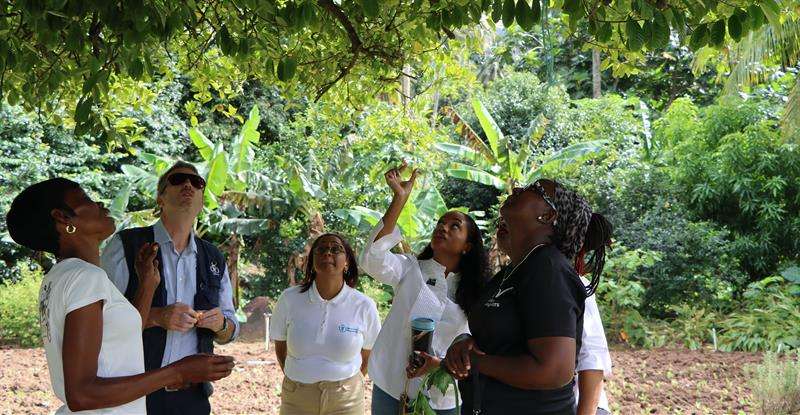Strengthening Disaster Preparedness and Social Protection in Saint Lucia: A Collaboration between the Ministry of Equity and the World Food Programme
The Ministry of Equity, Social Justice and Empowerment in Saint Lucia recently hosted Mr. Brian Bogart, the World Food Programme (WFP) Representative and Country Director for the Multi-Country Office in Barbados. This visit underscored the ongoing collaborative efforts between the WFP and the Saint Lucian government to bolster the nation’s social protection systems and enhance its disaster preparedness strategies. The discussions between Mr. Bogart and Hon. Joachim Henry, the Minister for Equity, centered on strengthening support for vulnerable populations, with a particular focus on Disaster Risk Financing and Anticipatory Action. These proactive strategies aim to mitigate the impact of crises, particularly climate-related disasters, before they occur, thereby enhancing resilience and community preparedness.
The WFP’s engagement with Saint Lucia focuses on three key areas: shock-responsive social protection, disaster management, and emergency preparedness and response. Recognizing the escalating risks posed by climate change to small island developing states like Saint Lucia, the WFP aims to scale up its support to bolster the nation’s capacity to withstand and recover from such events. The partnership emphasizes the importance of preparedness and proactive measures to minimize the impact of disasters on vulnerable communities. Mr. Bogart emphasized the need for continued collaboration and enhanced support, acknowledging the progress made while emphasizing the ongoing necessity to adapt and strengthen existing systems.
A crucial element of this collaboration is the implementation of anticipatory financing mechanisms. This proactive approach involves pre-positioning funds with the Ministry of Finance or Treasury, allowing for the rapid release of resources when pre-defined disaster triggers are activated. This advance funding empowers individuals and communities to take preventative measures before a disaster strikes, such as reinforcing homes or securing essential supplies. By enabling preemptive action, the anticipatory financing model aims to significantly reduce vulnerability and enhance community resilience in the face of impending crises. This proactive strategy shifts the focus from post-disaster reaction to pre-disaster preparedness, empowering communities to protect themselves and their livelihoods.
This innovative financing model fosters a more effective and efficient disaster response. By providing resources in advance of a crisis, the system minimizes delays and logistical challenges often associated with traditional post-disaster aid delivery. Communities can access funds quickly and efficiently, enabling them to implement necessary protective measures and secure essential supplies before the full impact of a disaster is felt. This reduces the reliance on reactive emergency responses and fosters a culture of preparedness and self-reliance within communities. The aim is to transition from a reactive approach to a proactive one, empowering communities to mitigate the impact of disasters before they occur.
The partnership between the Ministry of Equity and the WFP represents a significant step towards strengthening Saint Lucia’s social protection framework. By integrating forward-thinking financial solutions and proactive disaster preparedness strategies, this initiative aims to build a more resilient and inclusive system. The focus on anticipatory action recognizes the increasing frequency and intensity of climate-related challenges facing small island developing states, underscoring the vital importance of proactive measures to safeguard vulnerable communities. The collaborative approach fosters a synergistic relationship between national government and international organizations to address the specific challenges facing Saint Lucia.
The initiative seeks to build a more comprehensive and robust disaster management framework. By combining financial preparedness with community-level action, this partnership aims to create a multi-layered approach to disaster resilience. The anticipatory financing mechanism ensures resources are available when needed, while the focus on community engagement empowers individuals to take ownership of their safety and well-being. This holistic approach recognizes the crucial role of both systemic preparedness and individual agency in building a truly resilient nation. Ultimately, the collaboration between the Ministry of Equity and the WFP sets a precedent for proactive disaster management in the region, demonstrating the potential of anticipatory action and community engagement to create a safer and more secure future for vulnerable populations.
Share this content:












Post Comment